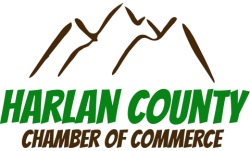March madness, music and miscellany
Published 4:10 pm Thursday, March 22, 2018
Here we are at the edge of winter, the beginning of spring, the height of NCAA March Madness, and the designation of the month as “Music in our Schools Month,” and yet the month of March is not easy for many of us to define or describe.
Emily Dickinson, 19th century American poet, is credited with “March is the month of expectation.” A more recent expression by 20th century author, newspaper columnist and television personality Thalassa Cruso: “March is a month of considerable frustration.”
And the English novelist Charles Dickens chose to describe one day in the month, in this fashion: “It was one of those March days when the sun shines hot and the wind blows cold; when it is summer in the light, and winter in the shade.”
One other quote that many in the Tri-State area can relate to this year. It’s from John Steinbeck’s book, “East of Eden.” He wrote “In March the soft rains continued, and each storm waited courteously until its predecessor sunk beneath the ground.” The difference in the rains this winter is that they were not always “soft” and one storm didn’t always wait for the next one.
Almost every day, in every medium, you can find references to March Madness, one of the most popular sporting events in the United States. The NCAA Division I Men’s Basketball Tournament was created in 1939, almost 80 years ago.
The tournament goal is to determine the national championship, and it is played mostly during March. This year, the championship game will be played on April 2.
If you follow the sport, or read occasionally about it, you know that the tournament is sometimes called the “Big Dance.” You know also that as teams are eliminated from the start featuring 68 college basketball teams from Division I, the numbers are reduced in categories that become the Sweet Sixteen, Elite Eight, the Final Four, and then the Championship.
Music in our Schools Month, started in 1973, doesn’t attract the media attention that March Madness does. But, it deserves greater visibility as it seeks to raise awareness of the importance of music education for all children. A major purpose is to remind all citizens that our schools are where all children should have access to music.
As a miscellaneous footnote to the topic of music in March, almost 70 years ago Radio Station WMIK featured an hour of classical music for its listeners. The unusual aspect to the programming was that it was offered to the Bell County Schools as a public service and was accepted by the Superintendent and staff, and all schools in the county system had access. The host was the station’s manager at the time who had previously been a classical pianist.
On that note, you are left to define or describe the month of March as you have experienced it!
William H. Baker, a Claiborne County, Tennessee, native and former resident of Middlesboro, may be contacted at wbaker@limestone.edu





